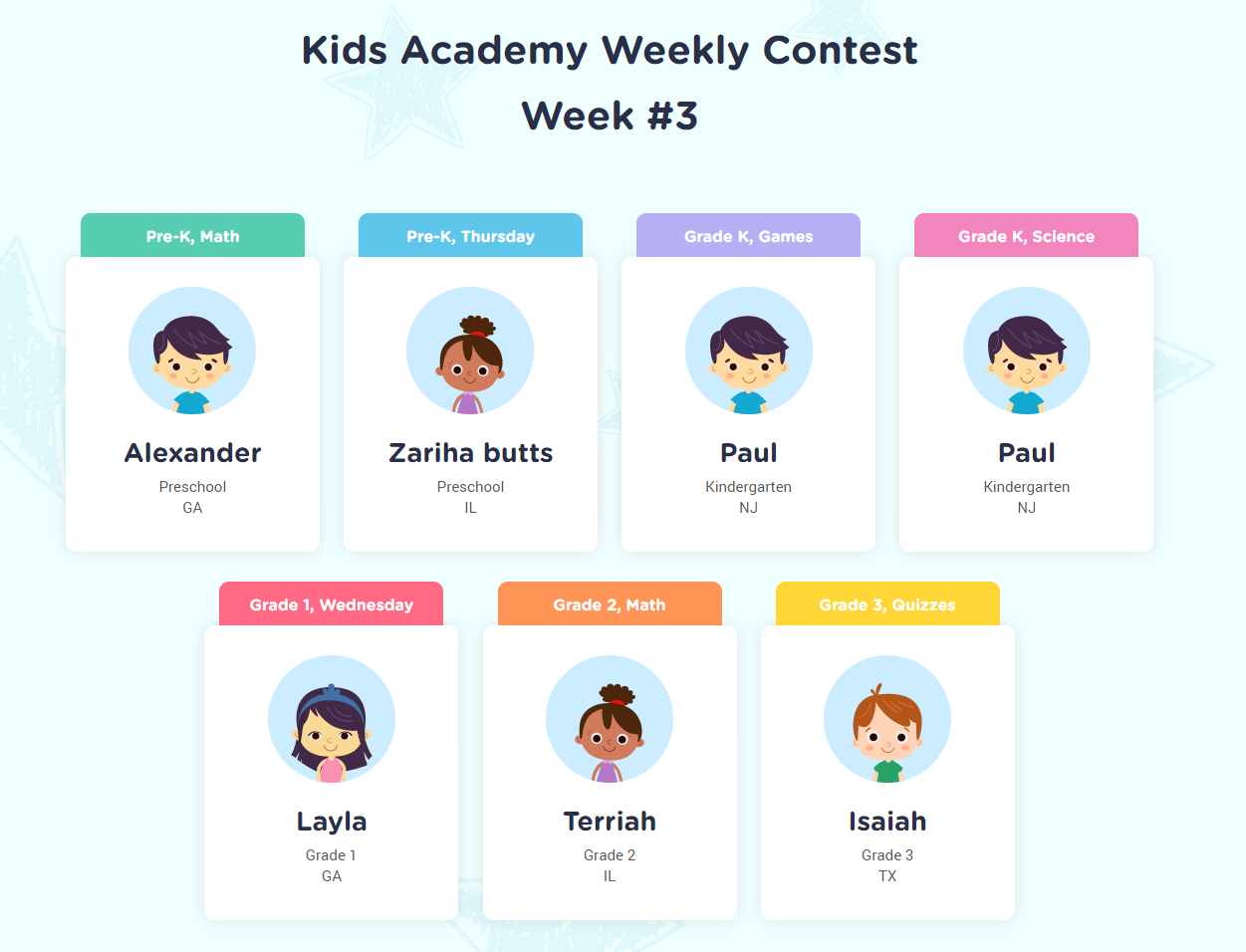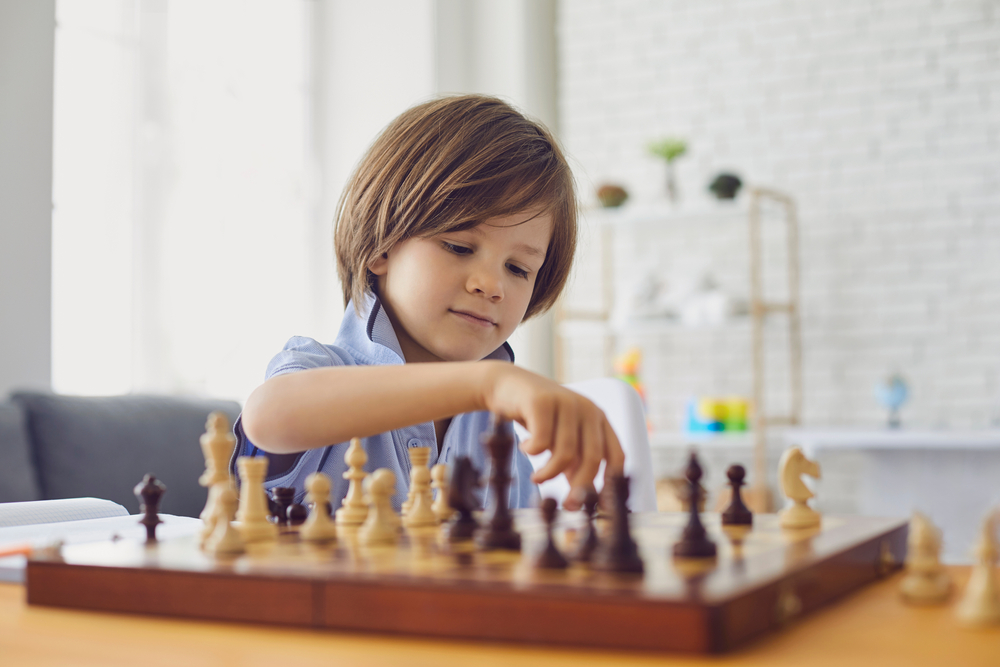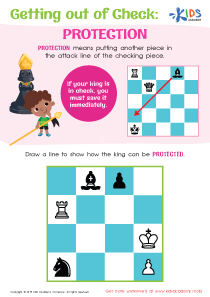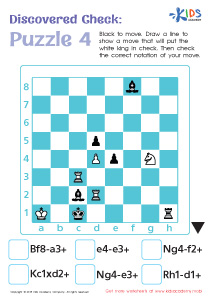Problem-solving abilities Chess Worksheets for Ages 5-6
3 filtered results
-
From - To
Enhance your child's problem-solving abilities with our engaging Chess Worksheets designed for ages 5-6! These printables provide a fun and interactive way for young learners to develop critical thinking skills while exploring the exciting world of chess. Each worksheet focuses on challenges that promote strategic thinking, logical reasoning, and decision-making. As children navigate various chess scenarios, they’ll learn to analyze situations and anticipate outcomes. Our colorful, age-appropriate materials make learning fun, ensuring that kids remain captivated while building essential cognitive abilities. Perfect for home or classroom use, these worksheets are an excellent resource for fostering a love of chess and problem-solving in early learners!
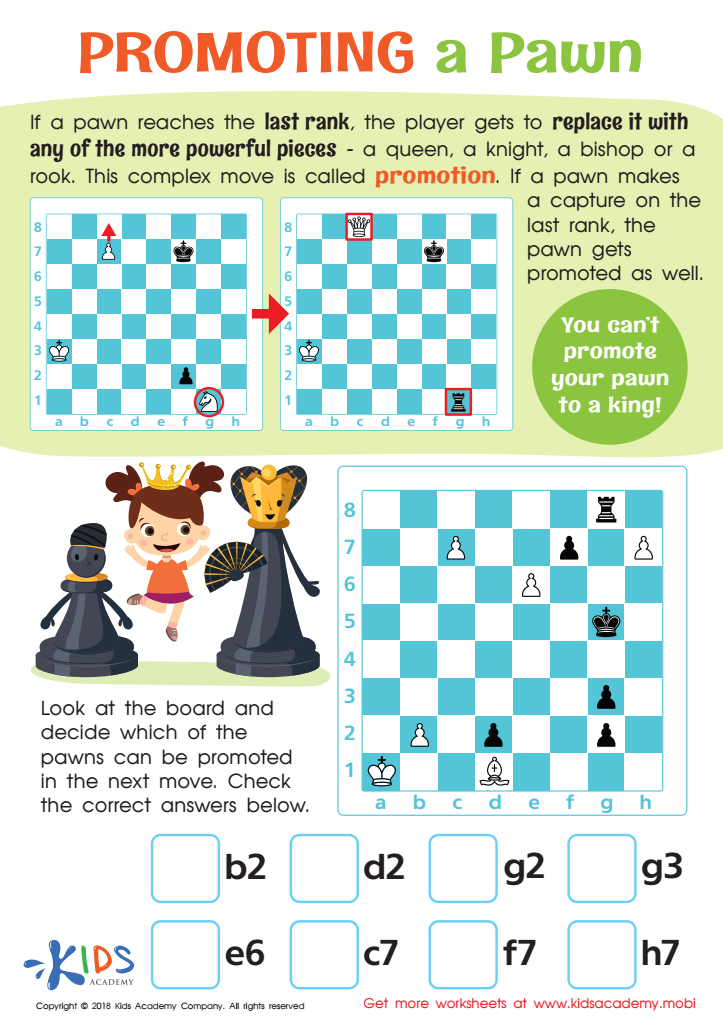

Promoting a Pawn Worksheet
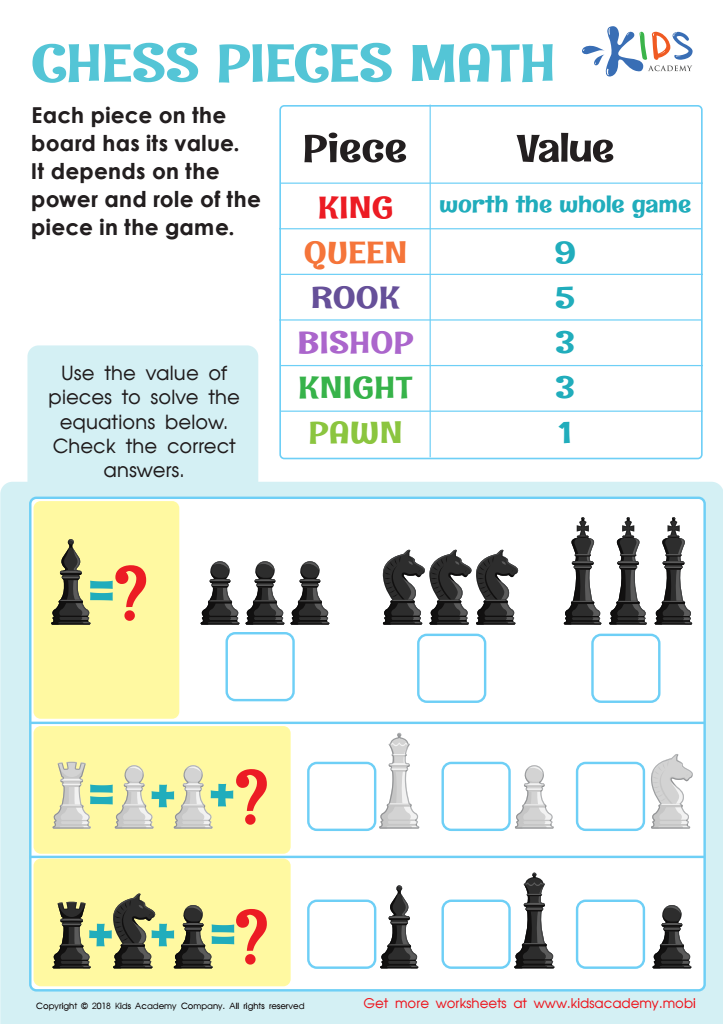

Chess Pieces Math Worksheet
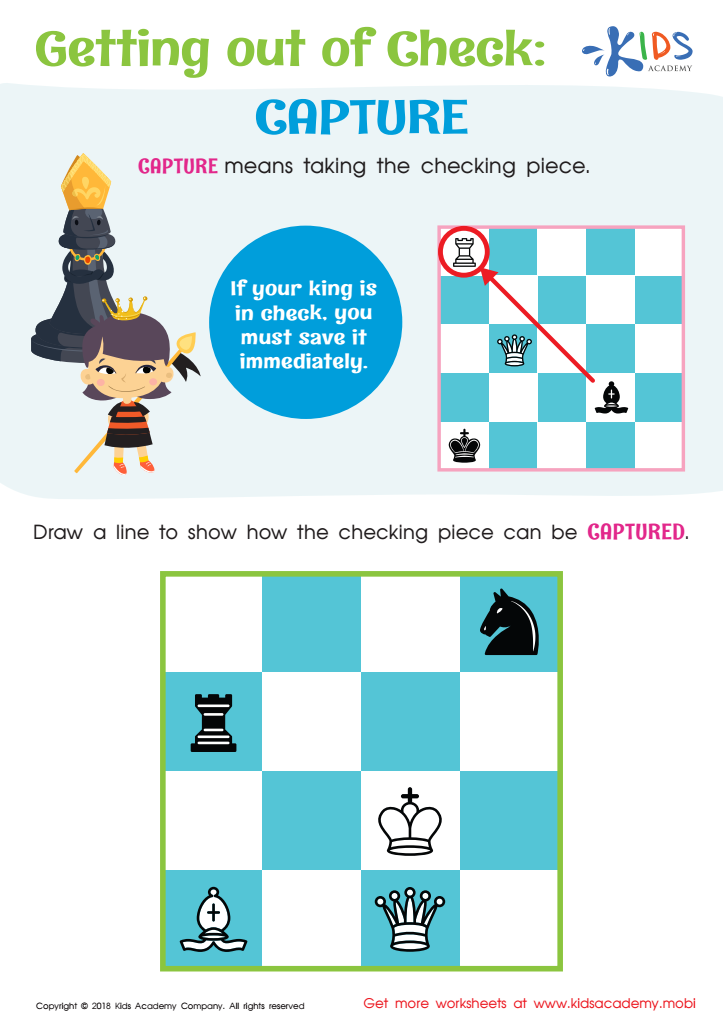

Getting out of Check: Capture
Parents and teachers should care about developing problem-solving abilities through chess for children ages 5-6 for several compelling reasons. Firstly, chess serves as an engaging and fun way to introduce critical thinking skills at an early age. As kids learn to navigate the game, they practice assessing situations, identifying potential outcomes, and strategizing their next moves. These cognitive skills translate to real-life problem solving and decision making.
Furthermore, chess encourages patience and perseverance—qualities essential for tackling challenges in academic and social settings. Kids learn that success doesn’t come instantly; instead, it requires dedication and resilience. Additionally, chess enhances concentration and memory, as players must remember the rules, positions, and possible moves, fostering cognitive development.
Socially, chess provides valuable opportunities for interpersonal learning as children test their skills against peers. They develop sportsmanship, learning to both win graciously and accept losses as part of growth. Finally, early engagement in chess can cultivate a lifelong love for learning and intellectual exploration, setting a strong foundation for future educational endeavors. By promoting problem-solving abilities through chess, parents and teachers empower children with essential life skills that extend beyond the board.
 Assign to My Students
Assign to My Students





